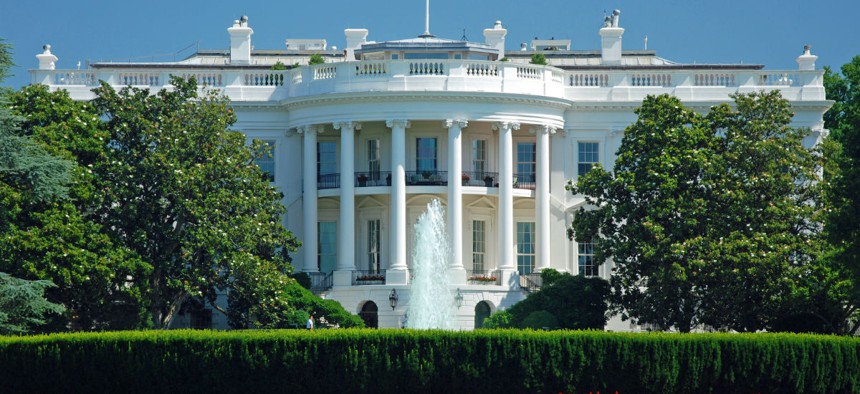Appointee Watch: Key Posts at Agriculture, Energy and Justice
White House again blames Democrats for slow staffing.
The Trump administration announced a number of key jobs at agencies this week, all while blasting Democrats for perceived intransigence in confirming appointees.
The White House sent out a scathing press release Monday arguing that Senate Democrats have dragged their heels throughout the confirmation process. But Democrats and neutral observers have noted that the president has been slow to name people to key posts, and committees—controlled by Republicans—have not held hearings on a number of nominees.
Earlier this week, the Senate confirmed Neomi Rao to serve as administrator of the Office of Information and Regulatory Affairs. And senators also voted to install William Hagerty IV to be ambassador to Japan.
Trump also announced another slew of nominations this week for U.S. attorney positions and federal judgeships.
According to The Washington Post and the Partnership for Public Service, which have been tracking more than 500 key administration posts requiring Senate confirmation, 48 officials have been confirmed to their positions. An additional 146 people have been either announced or formally nominated, while 370 jobs remain vacant.
In recent days, Trump has nominated the following people to administration posts:
Agriculture: Stephen Censky, deputy secretary. Censky is CEO of the American Soybean Association. He previously held posts at Agriculture during the Reagan and George H. W. Bush administrations.
Energy: Paul Dabbar, undersecretary for science. Dabbar is an executive at J.P. Morgan, and he has investment experience in a number of energy sectors. Before entering private industry, he was a nuclear submarine officer.
Mark Menezes, undersecretary. Menezes is vice president of federal relations for Berkshire Hathaway Energy. Prior to working in the private sector, he was chief counsel for Republicans on the House Energy and Commerce Committee when Congress passed the 2005 Energy Policy Act.
Federal Reserve: Randle Quarles, member, board of governors. Quarles served in multiple posts in the Treasury Department during the George W. Bush administration, including as undersecretary for domestic finance, and he was the U.S. executive director of the International Monetary Fund. He is founder and managing director of a private investment firm in Utah.
Health and Human Services: Dr. Robert Kadlec, assistant secretary for preparedness and response. Kadlec is the deputy staff director for the Senate Intelligence Committee. He served as special assistant to President George W. Bush on biodefense policy.
John Bartrum, assistant secretary for financial resources. Bartrum is a retired member of the Senior Executive Service who served as a staffer on the House Appropriations Committee, budget director at the National Institutes of Health, and in a number of other positions in the federal government.
Interior: Susan Combs, assistant secretary for policy, management and budget. Combs was most recently the Texas comptroller, and previously served as state agriculture commissioner. She also served in the Texas Legislature and was a small business owner.
Justice: David Muhlhausen, director, National Institute of Justice. Muhlhausen is a research fellow at the Heritage Foundation.
State: Mary Waters, assistant secretary for legislative affairs. Waters currently is State’s deputy assistant secretary in the bureau of legislative affairs, a position she has held since early this year. She has held a number of positions in the agriculture industry, and she previously served as assistant secretary for congressional relations at the Agriculture Department.
Lewis Eisenberg, ambassador to Italy and San Marino. Eisenberg is a prominent investor and financier. He also served as chairman of the Port Authority of New York and New Jersey.
Stephen King, ambassador to the Czech Republic. King owns an investment firm, but before entering private industry, he investigated civil rights cases for the FBI, was an investigator for the Senate Investigations Subcommittee, and was a congressional liaison for the Agriculture Department.
Dennis Shea, deputy U.S. trade representative, Geneva office. Shea is vice chairman of the U.S.-China Economic and Security Review Commission. He previously served as assistant secretary for policy development and research at the Housing and Urban Development Department.
Transportation: Ronald Batory, administrator, Federal Railroad Administration. Batory has spent more than 40 years in the railroad industry, most recently as president and COO of Consolidated Rail Corporation.








